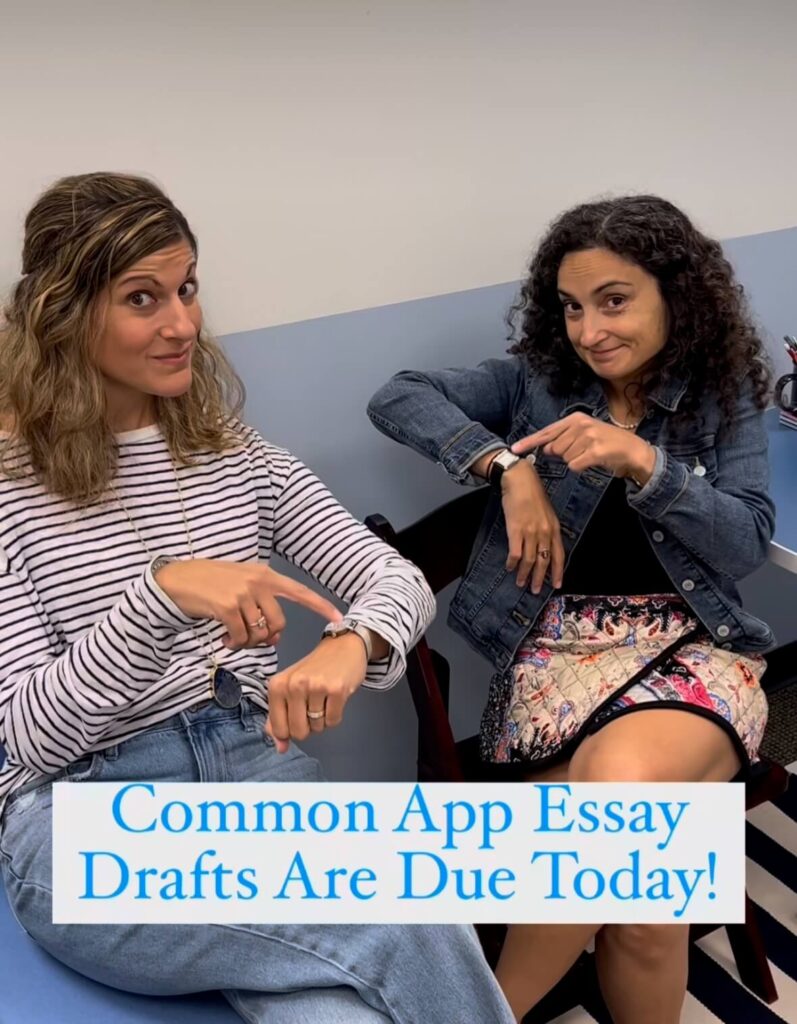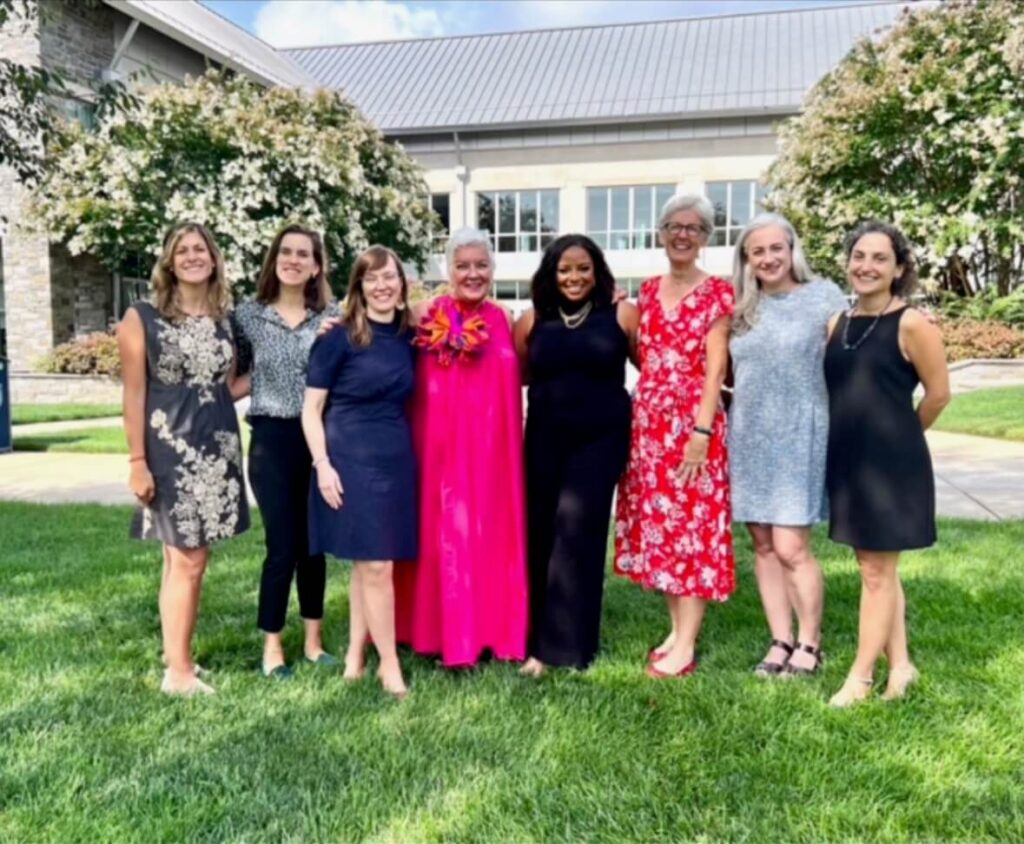Maggie Sgaramella ’26
This past year, four new college counselors were added to the EA’s staff: Chrissy Cerenzia, Jade Johnson, Oya Schooley, and Julie Kerich. As of now, the college counseling department consists of eight members. In addition to guiding students through ther college process, the college counseling department serves many purposes like offering general advice and creating a quiet environment for students to work. “I like to sit there to relax and do work sometimes. It’s a nice environment when the library gets crowded,” says Lia Mandeville ’25.

Photo Courtesy of @eacollegesounseling Instagram
“Students typically begin the college process in the second semester of sophomore year, but students and their families are exposed to the college counselors soon after they enter the Upper School,” Director of College Counseling Cyndy Crum explains. She also mentions, “Programs like Cialfo are introduced in freshman-year seminar classes and class meetings to familiarize students with the platform, and workshops are made available to parents.” Lara Grieco, another college counselor, says, “One of the programs I’ll mention that is great for students who are freshmen or sophomores is our summer activities fair. This event allows students and their families to explore summer opportunities that nurture interests important to developing yourself before the college process even begins.”
As EA college counselors work to guide students through the emotional and labor-intensive college process, they also look to connect with students and their families in the hopes of making the transition from EA to a college or university as smooth as possible. From reviewing essays to helping a student fill out their applications, college counselors provide support to students who are unfamiliar with the college application process. Beyond just college admissions, counselors are part of a student’s support system at EA. Chrissy Cerenzia, a college counselor, shares that she “loves getting to know the students beyond the college process and helping [students] navigate life as a whole and how to work through new experiences they may be having.” Delaney Oswald ’24 says, “My college counselor supported me by advising which classes I should take for senior year, but also understanding what classes I wanted to take regardless of how they looked on my transcript.”
Head of Upper School Michael Letts states, “College counselors help you strategize how you can build your experience at [EA] to move and drive you in the direction that you have the most passion and the most interest in.” Recently, EA has taken on four new college counselors to provide students with the extra support they need during this process. Letts continues, “More counselors means each counselor can really focus on each student more.” Cerenzia explains that more counselors has allowed “Domino Drop” to come to fruition. “Because we have so many counselors, during Domino we have a counselor on standby. I sit outside and anyone who has a question can come and ask me about the college process.”
The questions college counselors ask require students to evaluate what success means to them and what their priorities are. Grieco remarks, “One of the best compliments a student gave in our office today was ‘You ask hard questions.’” This student-led aspect of the process is what makes college counselors at EA so crucial to student development and success during this stage of education. College counselors really help develop students into who they are as they navigate the new and unfamiliar process of applying to colleges.

Photo Courtesy of @eacollegecounseling Instagram
The college process is never uniform. Crum explains, “No two colleges are the same like no two students are the same.” Every student’s process is different. College essay questions change from year to year, and more test options and transcript submission options become available. The landscape of the college admissions process has so many moving pieces. And since every class has students with diverse interests and backgrounds, “No two years are ever the same,” says Crum.
As EA juniors and seniors work through the college process this year, counselors have evaluated the impact the Supreme Court’s ruling on affirmative action will have on the decision process. On June 29, 2023, the Supreme Court voted to end affirmative action in higher education. For the past 40 years, colleges have been able to consider applicants’ races in their admissions. This ruling, claiming racial discrimination in admissions, was in reaction to the lawsuits against Harvard University and the University of North Carolina Chapel Hill. According to SHRM.org, Justice Sonia Sotomayor stated, “[the decision] rolls back decades of precedent and momentous progress. It holds that race can no longer be used in a limited way in college admissions to achieve such critical benefits.”
After the ruling, many colleges changed their essay prompts and requirements to reflect the switch. Many private universities have adapted their prompts to either directly reference the Supreme Court ruling or to inquire about an applicant’s background and lived experiences. According to Inside Higher Ed, “Over two dozen institutions appear to have introduced new essay prompts this year, many of which are clearly linked to the Supreme Court decision.” Others are changing admissions policies, including Virginia Tech which eliminated legacy preference and early decision.
EA college counselors believe that the ruling will not impact their process. Cerenzia explains, “It doesn’t affect how we counsel students. That part is all on the college’s side.” Identity and community have recently come to the forefront of college admissions. Grieco adds, “Increasingly colleges are asking students to reflect on their lived experiences and the communities to which they belong. Regardless of court decisions, I think that is something that will stay.”
Understanding each student’s unique identity and perspective is crucial to helping counselors find the right fit. Grieco explains, “I think what is really amazing is that every year we get to work with a whole range of students with so many different interests. The beauty of this process is there is no one set path and it’s individualized and tailored to each student which makes every day really different.”